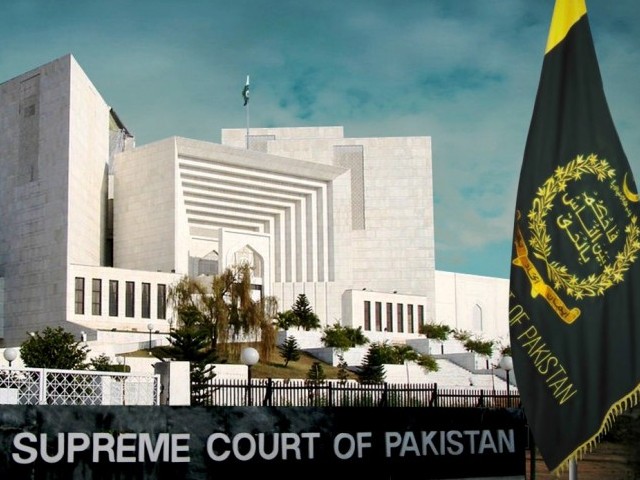DG FIA, Chairman PEMRA, Attorney General of Pakistan, others summoned in journalists’ harassment case
ISLAMABAD ( Web News )
The Supreme Court of Pakistan has summoned on Monday the heads of the Federal Investigation Agency (FIA), Islamabad police, the Pakistan Electronic Media Regulatory Authority (PEMRA), Attorney General for Pakistan, Advocate General Islamabad and all advocate generals of the provinces in a case pertaining to the harassment of journalists on 15th September. The court has also summoned the details of the proceedings going on in Islamabad High Court regarding the journalists.
A three-member bench of the top court, led by Justice Ijazul Ahsan, took up the suo motu case. The bench also sought a report from the Islamabad High Court (IHC) registrar regarding the status of pending cases of media persons. After issuing these directives, the top court adjourned the hearing of the case for two weeks.
At the outset of the hearing of the case journalist Abdul Qayyum Siddiqui, Asad Ali Toor and Amir Mir filed miscellaneous petitions to withdraw their petitions. Upon this the court directed them to file their applications in the concerned office while following the court procedure.
Justice Ijazul Ahsan while addressing Abdul Qayyum Siddiqui said that you have submitted applications under Article 184(3) and chief justice has taken notice while using his powers, adding that we are satisfied with the matter that the rights of the people are being affected and we could not forcefully ask you to continue pleading the case but the chief justice has taken notice so the three-member bench will move forward the proceedings. Justice Ijazul Ahsan remarked that the court will summon the concerned officials of the state and will ask question over the situation and affectees will also be heard because the court will have to satisfy itself that basic rights are not being violated.
Justice Ijazul Ahsan remarked that the media is the voice of the nation, adding that the constitution gives guarantee of protection of the journalists and if anyone is being threatened or has threat then the court will protect him. Justice Ijazul Ahsan said that the Supreme Court of Pakistan will interfere for the protection of the right of the journalists.
Justice Muneeb Akhtar remarked that Pakistani constitution provides freedom to media, adding that the freedom of journalism has not even been mentioned in the American and Indian constitutions, adding that if any law will be against the Article 19 of the constitution it will be declared null and void, adding that if the courtroom will be empty even then the court will hear the matter.
Justice Ijazul Ahsan remarked that state institutions are bound to give protection to journalists and masses.
Justice Qazi Muhammad Amin Ahmed remarked that being a judge we could not do politics likewise the journalist could not do politics, adding that the duty of a journalist is to do journalism, adding that journalism and freedom of expression should remain under limits of civilization, adding that the judges are in the hands of history and hands of some people. Later on the court adjourned further hearing of the case till 15th September.
It may be noted that the case was originally taken up by a division bench led by Justice Qazi Faez Isa. The bench on August 20, directly entertained the Press Association of Supreme Court (PAS) application against harassment of media persons. The division bench had also summoned several government functionaries on August 26 before it.
However, on August 23, a five-judge larger bench of the apex court, headed by Acting Chief Justice of Pakistan Umar Ata Bandial and comprising Justice Ijazul Ahsan, Justice Munib Akhtar, Justice Qazi Muhammad Amin Ahmed and Justice Muhammad Ali Mazhar, “held in abeyance” the two-member bench order.
The bench had said that the order deviated from the established practice of entertaining the suo motu notices.
The SC also held that the Chief Justice of Pakistan (CJP) was the “sole authority by and through whom the suo motu jurisdiction can be, and is to be, invoked/assumed” under Article 184 (3) of the Constitution.

